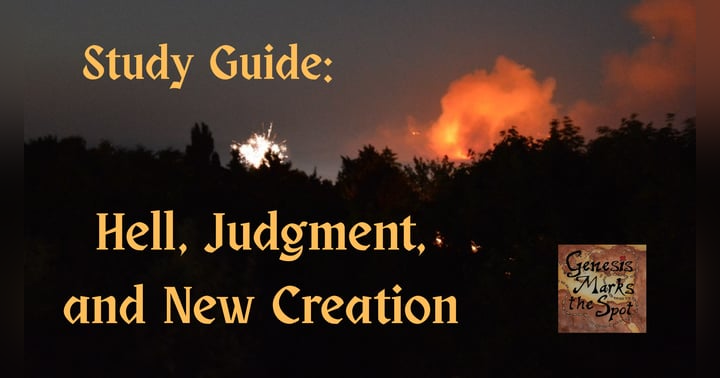The "Cult" of Michael Heiser? Respect Isn't Worship

This is a topic I have had to think about more often than I'd care to consider. On the surface, it seems silly and ridiculous. But, also, I fully understand that there are reasons that this does come up on a regular basis. So, no, you're not necessarily crazy in thinking that some people do go full-tilt / too deeply into the work of Dr. Michael Heiser and his "Deuteronomy 32/Divine Council Worldview." So here are some ruminations on all of that.
For the most part, I do think that claims of "the cult of Heiser" are unfounded and nonsensical. And full disclosure: I have followed the work of Dr. Heiser for almost a decade now. I've also been hired to curate his online content, and I have been an administrator of his official Facebook group since well before his death. I both know his work well, and love it--and Dr. Heiser--very much. So maybe I'm slightly biased/too deep into the cult to see that it's a cult! Maybe I've gone from one cult to the next!
Yeah, no, sorry, I haven't, and here's why: It's not a cult.
I could just end there; I feel like it should be pretty obvious that it's not a cult and that people aren't creating idols (if anyone has a Heiser statue, then send me a picture, please, especially if it's gilded). I actively disagree with Dr. Heiser's take on several points (curious?...keep reading and I'll give you a few), and not only that, but he himself encouraged others to disagree with him. That's why he was a scholar and why he pursued peer-reviewed research. He had no problems with disagreeing with people and having others disagree with him.
Such attitudes do not constitute the makings of a cult.
Now, are there people who kinda sorta maybe act like it is, though? Yeah. Yeah, there are, and we'll get to that. But first I want to acknowledge some things that ought to be obvious.
- As I said, he actually encouraged people to disagree/think for themselves. That is, indeed, the crux of why scholarship and academia is even A Thing. It is a place of expectation that ideas should be actively pursued for their own sake, and where if you leave out data or one side of things, you ought to be called out for your lack of rigor. (Try insisting on that in normal conversation and see where it gets you!)
- He was a beloved teacher who regularly brought people to understanding God and the Bible more deeply in impactful ways. And as a beloved teacher, his students actively love him. So yes, that love is outpoured in the way that people engage with his work. And there's not a single thing wrong with that. We ought to love elders and teachers who bring us into deeper discipleship with God.
- Many of the accusations I've seen of the "cult" are made in the Divine Council Worldview Facebook Group where, surprise!, there is an expectation for conversations to--at least generally--remain on topic.
"Wow! Why are people here always asking what Dr. Heiser thought about something?? Oh, I know! It's because it's a cult! He's the only person they ever care about! It's GroupThink!"
Uhmmm, how about, they're asking about "what Dr. Heiser thought" because, A), that's the whole point of the group, and B), "what he thought" often was an amalgamation/dispersal of what other scholars have said so no, it's not just "what he thought." When he shared information, you can know that when he did so, he did it from a world that most laypeople don't have complete access to, a world of ideas that are useful and interesting. That was his brilliance, in opening that world for people. - Biblical theology (read: "studying the Bible in its ancient context") is a new thing for most people. As such, they're both excited about it, and have a LOT of questions. So it's completely and utterly unsurprising that they are asking the person who brought them the methodology to begin with. Sadly, Dr. Heiser is no longer with us, so we are left mining the content that he provided. (Thankfully, as I can attest in my new job with the MSH Foundation, there is a lot!)
I'm sure there are several other points I could add (in fact, I just thought of two more), but I think you get my gist. Because of all of these points, I do tend to take a light-hearted approach at addressing the "cult/idolatry" concerns of people. In fact, I have re-started my recipe blog in honor of the "cult." (Check it out, the cult has cookies!)
Valid Concerns? Yeah...They Exist
But as I mentioned at the beginning, I do see some concerns in how Dr. Heiser and his material have been "elevated" to some extent. I won't name names here, because I think these people have their hearts and intentions in the right place. But here's a few "Danger, Will Robinson!" points that I regularly see (and some counters to the thoughts in parenthesis):
- Disagreement with Dr. Heiser is seen as a threat to a solid "Biblical" understanding of Scripture. (Please see point 1 above; disagreement is both okay and should even be sought after! Though Dr. Heiser was firm in his conclusions, he was not attempting to make himself an authority. In everything, he was concerned about data, data, data. Show me the money/evidence.)
- The idea of a scholar or student "never having read Heiser" is met with shock and dismay. (Dr. Heiser said that he was a "dot-connector" and that the "dirty little secret of The Unseen Realm is that Mike never had an original thought." That means that, golly gee whiz, you don't actually have to have read Dr. Heiser himself in order to understand these ideas, or to take Scripture or the spiritual realm seriously, etc etc.)
- Someone won't go to a church that "doesn't have a DCW." That's shorthand for teaching the type of material that Dr. Heiser taught, a "divine council worldview." (Dr. Heiser said many times that this should not be a point of breaking fellowship over. While solid teaching and good discipleship should be part of what a church "does," sometimes that will necessarily not be a perfect fit for where each person is currently growing. I encourage you to be part of your local body wherever you are, and even if others aren't quite "on board" with what you're thinking about, give them a chance! Slowly open up what you're learning to others, because that's one of the most effective ways to share what we're learning and grow together.)
- Claims that the only way to "take the spiritual realm seriously" is to accept the DCW or to accept the conclusions that Dr. Heiser made in The Unseen Realm. For instance, Dr. John Walton is on the "bad list" of many people simply for reasons such as this. (Personally, I think Walton has some valid reasons for his position--he's said that he is concerned with the perpetuation of the idea that YHWH has a legitimate challenger--an actual equal--in the spiritual realm...a fair point, as the conclusions of Heiser's Unseen Realm might be taken to that level. However, it is true that Walton also says that we can't be sure that the "gods" behind the worship are exactly who they say they are in a metaphysical way like we describe "real" things today, though he does admit to the reality of spiritual beings. I think this is kind of a valid point to some degree, but Walton's suggestion that the gods are described as a description of the common understanding of the world, not an affirmation of reality, doesn't work in the end. That's a point I hope to tackle in the future, contra Walton.)
- An over-emphasis on the dark powers and "figuring out who's who." (What if the tendency to try to figure out "who's who" is part of the reason that so much is not explicitly described in Scripture? You don't see the people of Israel entering the promised land and then teaching their kids lists of Egyptian deities because, remember, kids, we don't worship those guys. The point isn't that they have so much power that we should fear them or need to name them, but rather the opposite: the only power they have is still under the sovereignty of God and that they can, in fact, be so safely ignored that they don't need to be named or categorized. The glory of God outshines all other powers--both in the OT as well as the NT and today.)
- A politicization of the DCW. (I have more to say about this, but I'll leave that one for now except to say that a claim of not engaging in xyz politics is...still politics.)
- Scare tactics of Nephilim DNA. (Okay, this one is funny to me because, in fact, Dr. Heiser's content should be the antidote against the sensationalist claims of many who wouldn't know theology if it came and abducted them in a shiny metal flying saucer straight into a padded room. But people hear the siren call of Genesis 6:4 and think that anyone uttering the word "nephilim" will, by necessity, fall under the same category of paleobabble and hist-eria of ancient aliens or corrupt genetics.)
Okay, enough points. The fact is, sure, some people will get a bit overly excited and might even act a little cultish. But those are often personality points or merely the expression of something that they've found useful....or they might even be evidence that they have had a really hard time in church, and they want something better.
Those last seven points? Let's work to dismantle that thinking.
...at least in the ways that are unhelpful.
I know, a lot of you are out there trying to get others to care about what you care about because it matters....and maybe that's exactly what you should be doing. And I'm also not trying to put down anyone who wants genuine fellowship and good instruction by people who understand the Bible in context and who really want to dig deep into learning. I get it. Those things should be easier to find sometimes. Maybe you're the one to bring that. Maybe it's time to move somewhere else to find like-minded people. None of that is up to me to tell you. I just wanted to share some thoughts that I see on both sides of this whole thing.
Now, I know, I know, you want to know where I disagree with Dr. Heiser. Fair enough, I'll share a few points. None of these dismantle or are a threat against the ideas he taught as a whole. I'll give you a short (non-comprehensive) list and if you want full-blown discussion on them, well, you know where to find me.
Where do I disagree with Dr. Heiser?
A few minor examples.
- John 6 really does have something to do with the Last Supper.
- Baptism is wider in scope/purpose.
- I'm less okay with just "being evangelical." (Dr. Heiser didn't particularly like the term, but he never claimed not to be one.)
- There are more points that need to be made about John 10 and Psalm 82.
- The sons of God of Gen 11/Deut 32 were rebellious to begin with.
- God is perfectly comfortable having rebellious beings "on his payroll." (But he was spot on about the satan in Job, originally.)
- Indiana Jones and the Kingdom of the Crystal Skull was......all right, fine, Mike wasn't wrong about that, but I'm still going to keep watching it. When I'm not watching the odd numbered movies.
"Choose wisely."
Not about relics. Not about heroes. About loyalty where it counts.









